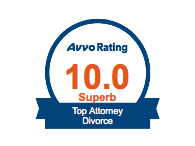Cavanagh v. Cavanagh from the Supreme Judicial Court changes the playing field for Child Support and Alimony Cases
Cavanagh requires probate and family court judges to consider and calculate concurrent alimony and child support orders in every case when they are both applicable to a particular matter. Further, Cavanagh appears to state that even parties who waived alimony at the time of divorce (but reserved future) could seek immediate relief in probate and family court without proving a material and substantial change in circumstances. For instance, if a parties’ separation agreement contains a waiver of only “past and present” alimony and reserved the right for “future alimony” pursuant to Cavanagh, a new award of alimony after the entry of the divorce judgment would not require modification of the judgment and thus does not require a finding of a material change in circumstances. The Judge would merely proceed with the 4 steps outlined below.
Cavanagh also includes changes to what constitutes income when calculating child support and potentially alimony. Cavanagh rules that employer 401k matches, employer contributions to pretax healthcare accounts must be counted as income in child support cases. Further, Cavanagh states that income for child support purposes should contain income from interest/dividends any capital gains not resulting from “real and personal property transactions” which include investment gains. The ruling suggests that all of the above are also income for alimony purposes. The Massachusetts alimony statute MGL c. 208 Section 53, provides that income for alimony purposes “shall be defined as set forth in the Massachusetts child support guidelines.” Thus, employer contributions to a health savings account, like contributions to a retirement account are considered part of an employee’s income for the purposes of calculating child support (and also potentially alimony).
Probate and Family Court Judges must follow a new method under Cavanagh where concurrent orders for child support and alimony are potentially available:
- Calculate alimony first, in light of the statutory factors enumerated in § 53 (a) and the principle that, with the exception of reimbursement alimony, the amount of alimony should be determined with reference to the recipient spouse’s need for support to allow the spouse to maintain the lifestyle enjoyed prior to the termination of the parties’; marriage. Then calculate child support using the parties’ postalimony incomes.
- Calculate child support first. Then calculate alimony, considering, to the extent possible, the statutory factors enumerated in § 53 (a). We acknowledge that in the overwhelming majority of cases, the calculation of child support first will preclude any alimony being calculated in this step.
- Compare the base award and tax consequences of the order that would result from the calculations in step (1) with those of the order that would result from the calculations in step (2), above.
- The judge should then determine which order would be the most equitable for the family before the court, considering the mandatory statutory factors set forth in G. L. c. 208, § 53 (a), and the public policy that children be supported as completely as possible by their parents’ resources, G. L. c. 208, § 28, and determine which order to issue accordingly. Where the judge chooses to issue an order pursuant to the calculations in step (2) or otherwise that does not include any award of alimony, the judge must articulate why such an order is warranted in light of the statutory factors set forth in § 53 (a). [Citations and footnotes omitted.]
Of Note: The Court must address the 53 (a) factors when determining an alimony award under. L. c. 208, § 53 (a). These factors are are: the length of the marriage; age of the parties; health of the parties; income, employment and employability of both parties, including employability through reasonable diligence and additional training, if necessary; economic and non-economic contribution of both parties to the marriage; marital lifestyle; ability of each party to maintain the marital lifestyle; lost economic opportunity as a result of the marriage; and such other factors as the court considers relevant and material.




